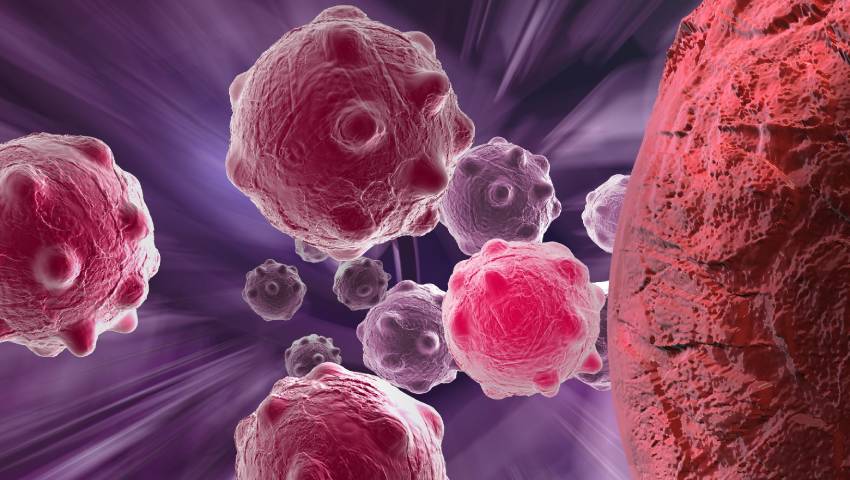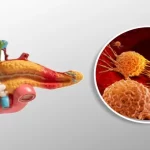
Your health is your topmost asset, and being visionary about it is essential, especially when it comes to recognizing implicit warning signs of cancer. In this composition, Dr. MSS Keerthi, a famed cancer specialist in Hyderabad, will feature 10 critical symptoms that men should never Ignore. From unexplained weight loss to changes in bathroom habits, understanding these signs and taking prompt action can make all the disparity in early detection and effective treatment. Let’s dive into these symptoms to ensure you’re equipped with the knowledge to cover your font- being.
Unexplained Weight Loss:
Losing weight without trying can be a welcome surprise for some, but it can also be a signal of something more serious. While lifestyle changes, pressure, or other non-threatening procurators can affect weight loss, it can also be an early intimation of cancer.
Why It Happens?
Cancer cells can revise your body’s metabolism, leading to unintentional weight loss. They can also release substances that revise the way your body uses nutrients. This can affect a quick drop in weight, indeed if you have not changed your eating or exercise habits.
Abnormal Lump:
Finding an unusual lump or swelling, especially in areas like the testicles, neck, underarms, or abdomen, should prompt a medical check-up. While many lumps can be benign, some might indicate cancers like lymphoma or testicular cancer.
Why It Happens?
Lumps can develop for many reasons, involving infections, benign growths like excrescencies, or blown lymph bumps. However, lumps can also be a signal of cancer, as tumors form when cells grow uncontrollably.
Blood in Your Pee or Stool:
Seeing blood in your urine or coprolite can be intimidating and is a symptom that should never be overpassed. Blood in your coprolite could point to colorectal cancer, while blood in your urine might indicate bladder or kidney cancer.
Why It Happens?
Blood in the urine( hematuria) or coprolite( rectal bleeding) can occur for several reasons. Infections, hemorrhoids, or minor slits can beget bleeding, but it can also be a signal of more tough conditions similar to cancer, especially if the bleeding is persistent or intermittent.
Changes in your skin:
Our face is the largest organ of the body and frequently serves as a visible indicator of our overall health. Changes in the skin can be among the foremost signals of serious conditions, involving cancer. Men should be especially attentive to any differences in their skin, as early discovery and treatment can significantly enhance outcomes.
Why It Happens?
Skin changes can happen for multiple reasons, ranging from inoffensive conditions to hard conditions like cancer. Exposure to UV radiation from the sunshine, inheritable procurators, and lifestyle choices can all impact skin health. Recognizing the gesticulations that suggest commodities are more serious is pivotal.
Trouble Swallowing:
Difficulty swallowing, known medically as dysphagia, can be more than precisely a minor inconvenience. It can indicate serious beginning health conditions, involving cancer. Feting and addressing this symptom early is pivotal for timely opinion and treatment.
Why It Happens?
Trouble swallowing can result from various effects affecting the throat or esophagus. It might be due to muscle problems, nerve effects, or blockages in the esophagus. In some cases, it could be a gesture of cancer in the esophagus, throat, or other nearby structures.
Persistent Fatigue:
Feeling constantly tired, despite acceptable rest, can indicate several diseases, including leukemia and colon cancer. Persistent fatigue is more than precisely feeling run-down; it’s a deep-seated tiredness that does not go away with sleep.
Why It Happens?
Persistent fatigue can affect a variety of procurators, involving stress, shy sleep, penurious nutrition, or habitual ails. In the context of cancer, fatigue can occur due to the body’s reaction to the complaint, the dynamism demands of fleetly growing excrescences, or the side goods of cancer treatments.
Persistent Cough or Hoarseness:
A cough that does not go down or a hoarse voice that lingers for weeks can be signals of lung, throat, or larynx cancer. While these symptoms can be caused by less serious conditions, it’s pivotal to have them estimated if they persist.
Why It Happens?
Coughing and hoarseness can be affected by a variety of antecedents, involving infections, allergies, or habitual conditions like asthma. Still, when these symptoms persist beyond many weeks, they can indicate more tough health issues, similar to cancer. Tumors in the lungs, throat, or voice box can directly affect these symptoms by obstructing airways or affecting oral cords.
Changes in your bathroom habits:
Changes in bowel movements, such as prolonged constipation, diarrhea, or a change in stool consistency, can be signs of colorectal cancer. Pay attention to any unusual patterns and discuss them with your healthcare provider.
Why It Happens?
Changes in bathroom habits can occur due to various factors, including dietary changes, medications, stress, or underlying health conditions. In some cases, these changes may signal more serious issues like cancer. Tumors in the urinary or digestive systems can affect normal functioning and lead to noticeable alterations in bathroom habits.
Changes in your mouth?
Changes in your mouth, including unusual sores, discoloration, or persistent pain, can sometimes indicate underlying health issues, including oral cancer. Being attentive to these changes and seeking medical advice promptly can lead to early detection and better outcomes.
Why It Happens?
Changes in the mouth can occur due to various factors, including infections, injuries, oral hygiene habits, or underlying health conditions. In some cases, these changes may signal more serious issues like oral cancer. Tumors in the mouth or throat can cause noticeable alterations in oral health and require prompt attention.
Changes in Urination:
Constant urination, difficulty starting or stopping the inflow of urine, or a weak urine sluice can be signals of prostate cancer. While these symptoms are common in aged men, it’s important to have them checked out, especially if they appear suddenly or worsen over time.
Why It Happens?
Changes in urination can occur due to multitudinous procurators, similar to urinary tract infections, prostate cases, drugs, or lifestyle fashions. Still, they can also cause more serious conditions like cancer. Tumors in the urinary system or other organs can affect usual urination patterns and may affect noticeable differences.
Early discovery is crucial in the fight against cancer. However, do not hesitate to seek medical guidance and book an appointment with the best oncologist in Hyderabad, Dr. MSS Keerthi, If you witness any of these symptoms. Regular check-ups and being in tune with your body can make all the disparity in catching cancer early and perfecting the chances of successful treatment. Remember, it’s invariably better to be safe and visionary about your health.







